Interview / Audio Premiere: Double Dagger (w/ Bruce Willen, Denny Bowen, Nolen Strals)
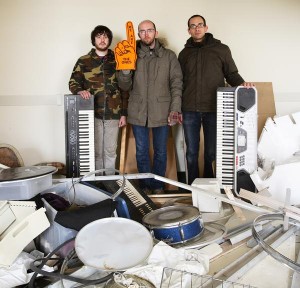 Aural States, in association with Thrill Jockey, are proud to host the premiere of “The Lie/The Truth” from Double Dagger’s upcoming full-length, MORE.
Aural States, in association with Thrill Jockey, are proud to host the premiere of “The Lie/The Truth” from Double Dagger’s upcoming full-length, MORE.
Audio clip: Adobe Flash Player (version 9 or above) is required to play this audio clip. Download the latest version here. You also need to have JavaScript enabled in your browser.
MP3: Double Dagger – The Lie/The Truth
Disclaimer: Double Dagger is one of my favorite bands. And on top of that, they’re exceedingly friendly guys. So with great relish I met up with them pre-practice this past Saturday afternoon at the Copycat and we proceeded to discuss past, present, future and everything MORE, their first release with their new label Thrill Jockey, which drops on May 5.
Also, the boys have some shows lined up this week:
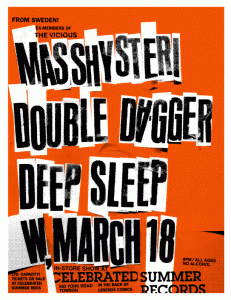 WEDNESDAY, MARCH 18 (TONIGHT)
WEDNESDAY, MARCH 18 (TONIGHT)
Towson, MD / Celebrated Summer Records
w/ Masshysteri (from Sweden, ex-The Vicious), Deep Sleep
All ages! 8:00 PM. (limited capacity)
THURSDAY, MARCH 19
Brooklyn, NY / Market Hotel
w/ Future Islands, Teeth Mountain, Liturgy
www.myspace.com/markethotelnyc
FRIDAY, MARCH 20
Philadelphia, PA / Danger Danger Gallery
w/ Future Islands, Reading Rainbow, Hot Guts
21+ only. 9:30 PM. $3 cheap!
Aural States: Let’s start with a brief history. The abbreviated version of how Double Dagger started.
Nolen Strals: What was that, summer of 2002?
Bruce Willen: Prior to being in Double Dagger, Nolen and I were in this band called League of Death we started while we were at MICA. League of Death was going to be a heavy metal band, but none of us were talented enough musicians to play heavy metal. So it sort of evolved–or devolved–to us playing sloppy, noisy, chaotic hardcore. Falling down, breaking our equipment, knocking people over in the audience.
AS: So you weren’t hiding any insane prog metal chops?
BW: *laughs* Let’s just say with League of Death, the performance aspect was always better than the music.
NS: Youthful bitterness and rage.
AS: What were your experiences before that?
NS: I’d been in a band in high school and college. We’d play small shows.
BW: I’d been in some crappy bands in high school, done some home recordings solo stuff for a few years. More indie rock, folk kind of stuff. Not so much metal.
NS: And in 2002 Denny was what…12?
Denny Bowen: 2002, that’s the year I graduated high school. So I turned 18 in November of ’02.
BW: We originally met Denny who was playing guitar in Economist at the time. Brian Dubin was our original drummer in the first recordings and years of existence. We played a bunch of shows and a 7″ with your band.
DB: Yeah we did a split 7″ that Hit Dat put out.
BW: That was actually the first Double Dagger release. So that’s how we got to know Denny. When Brian left the band in 2004, we weren’t totally ready to call it–throw in the towel yet. And at that time we knew that Denny was supposedly a good drummer…
NS: But we had never heard him before.
BW: We had a show coming up and Denny said “Yeah I’ll fill in on drums.” We gave him the CD and basically picked up everything in one practice. Everything was down and it sounded really awesome for never having played before.
NS: It was our first or second show…I think he was still sitting in. This house show in Virginia. Somebody in the crowd asked for this song we had never practiced with him. We thought “Oh let’s give it a shot.” He ended up playing it perfectly.
DB: What song was that? ”Attack of the Clones?”
NS: Yeah I think so.
DB: The funny thing about all that is Brian was originally a guitar player who played drums in DD and now plays guitar again in the New Flesh, and I was a drummer who played guitar for a while and now I’m back to drums.
AS: Coming off League of Death, what was the motivation for Double Dagger? Why not stick with League of Death and have a different roster?
NS: I think it was the musical style we weren’t passionate about or married to.
AS: Is there any deeper typographical meaning to the name Double Dagger?
BW: Well, double dagger is the typographic symbol used for footnotes. The sequence is generally an asterix (*), a dagger (†) which is cross shaped and then the double dagger (‡), which is a sort of cross with a double crossbar. And it sounds tough.
AS: But surely you didn’t want to be thought of as a footnote…let alone the third one.
NS: *laughs* I never thought of it that way.
DB: But even the third footnote is still on the page!
AS: This is true. I was thinking about other meanings and the other major usage is in chess. I think when you are calling a chess game, double dagger signifies checkmate.
NS: You hear the world? We got you all in check!
DB: I thought I would’ve heard of that going to UMBC. We’re a big chess school and I worked event stuff. So I had to set up these giant life-size chess sets, with wireless mics on people walking around moving these pieces. There were even people around them playing chess…it was kind of overkill.
AS: Maybe a little. But I think the first thing that comes to mind when someone mentions Double Dagger, is the live show. Compared to League of Death, how is the approach different? It’s still rather confrontational.
BW: Speaking personally, all the bands that I’ve always admired, not necessarily musically, have an engaging live show. It’s not always interactive, but you can tell the band is really getting into it, musically, some sort of performance or interaction with the crowd. It’s always disappointing when you goto see a band and they just stand there, stare at their shoes.
DB: Even if there’s one member that’s kind of the hype man, it’s still kind of awkward.
BW: Even if it’s something really quiet, the amount of energy the performer puts in is a huge part of it.
NS: There are definitely bands that just stand there, but have this intensity, this energy to them, that makes them have this magnetic presence. But not a lot can pull that off. When I was in high school, I saw this garage rock two-piece. A singer and guitarist. They put on a better, wilder show than I’ve ever seen since then. That has always had a big impression on me. They were playing a small bar, the crowd was maybe 20 people on a Wednesday night, and this band just exploded. They were drenched in sweat after the first song. I thought: “Wow, this is what all bands need to be.”
BW: Yeah, I mean we don’t plan this all out. The idea is that we want to play, perform, with a lot of energy. And preferably get the crowd engaged. We start feeding off the excitement in the crowd and it just makes a better show.
AS: So even though sometimes you may come off as confrontational, it’s not always the intent? It’s more just trying to be engaging?
DB: It’s kind of both. We all try to put it all out there at once, a full-out assault. Not just Nolen going crazy. It’s really loud bass, loud drums and Nolen going crazy and being loud up front.
NS: I can’t be as loud and interesting as they can musically, so I try to be as interesting as they are, physically. But it’s a subconscious thing. I’m not sitting at home planning this all out. Half the times, at shows, I end up doing something, I’m just like “How am I doing this? Why am I doing this?” That’s something I really like about this band. That happens a lot. We’re just so into performing the music, sometimes we just end up in these situations we didn’t plan.
AS: So I think I read or heard that you’ve ended up punching a few guys at shows?
NS: Oh I’ve punched a lot of guys by accident. *laughs*
AS: It’s a lot easier for Denny or Bruce to not worry about control and just let loose. How do you balance spontaneity with lines, thresholds, control? Particularly in a venue when people are not responsive. Like one of your Rock and Roll Hotel shows…
NS: Yeah, to quote a DC band: “It’s like screaming at a wall.” *laughs*
AS: But like a wall made out of tissue paper. How do you deal with that?
NS: I don’t know. There’s some shows where it just gets frustrating. You hope for some sort of feedback and sometimes it’s just not there. There’s times that results in me just being a smart-ass and just rude to the crowd. When I am an audience member, I think it’s really funny when bands are rude or hostile towards the audience. But that’s kind of this big no-no. You’re supposed to be nice to and appreciate the crowd, for coming out to see you. But if the crowd doesn’t seem like they’re into it…if they aren’t enjoying it, I’ll just be a dick to them.
But then just other times it’s just frustration and I don’t know what to do. And other times I’ll just think: “They don’t care so I’m going to do the stupidest shit I can think of.” But there’s no formula for it. The factors that go into how the performance ends up are just all over the place.
AS: Have you changed the live performance much over the years? I don’t think I’ve seen you before 2005…
DB: I think if anything we’ve become more collective playing live.
BW: I think we’re a bit more controlled. Speaking personally, I’m a little more conscious about playing the music. When we first started I was just like “Whatever, it’s just loud, if I drop the guitar oh well.” But I’m controlled now.
DB: That’s the thing I started to realize, once I moved past songs that I didn’t write with the band, playing drum parts that I was just kind of sweetening up. After that, starting to write stuff with Bruce and realizing how good of a songwriter he is, I never really knew that. I knew what the final product was, but the process, once we got into that process, really brought out what we’re doing now. In the best way.
BW: I think the other part of it is that I was never a bass player, I was a guitar player. I had never played bass live. So part of the band was me trying to figure out how to play this instrument in a way that we didn’t require other instruments to begin with. Some of the more recent stuff, the parts I’ve written are a lot more complex in terms of how hard they are to play and perform. A lot more work and concentration.
AS: How did you guys end up signing with Thrill Jockey?
BW: Well we had recorded a bunch of 4-track stuff last year, some of which was on Sophisticated Urban Living 7″ and a handful of other songs that haven’t been released. We sent them out to some of our friends, some labels we knew. Rob Girardi, who mixed our record, has done a lot of other stuff for Thrill Jockey. They asked him what other projects he’s worked on and he mentioned us. They were familiar with our last album and the team at Thrill Jockey really liked the last album. So they contacted us and asked if we could do anything to send them…and it just went from there.
AS: You guys are kind of your first foray into harder fare.
BW: Except for Gaunt.
NS: They put out a little more punk stuff in the early days.
DB: That Thank You record is pretty dirty.
NS: I think that Thank You is a much more aggressive band than they even realize.
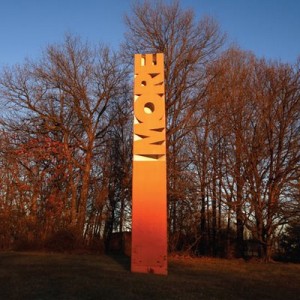 AS: Did the new record, MORE, happen before or after the deal?
AS: Did the new record, MORE, happen before or after the deal?
BW: They had heard most of the songs that were going to be on there, so they had a good idea of what it was going to sound like.
DB: We definitely had the intention of putting out something soon.
NS: We had already planned on recording the album, we just hadn’t figured out who was going to put it out.
AS: How do you guys feel about the album? What were some of your thoughts while making it?
BW: The new album is called MORE; we sort of settled on that title under pressure. But it seems sort of apt, because in a lot of ways it is more for us on a lot of levels. We spent more time on it, the songwriting is definitely…more improved, more louder, more amplifiers, we had to carry our equipment up more flights of stairs.
NS: I put a lot more time into the lyrics. We spent more time on mixing.
DB: More money towards Baltimore City impound lot.
AS: Where did you guys record it?
BW: We recorded on the 5th floor of the Current Gallery, which has no electricity or heat up there. When we recorded in December and January, we had to run these extension cords out the windows and down stairs to plug in all the space heaters.
NS: And hang up some plastic to try and contain the heat in the central room.
DB: Definitely a lot of stale air floating around. It felt really weird.
AS: Why there then?
DB: I think we wanted the control aspect over it. We wanted to do it ourselves. The time aspect had a lot to do with it, going in there and not feeling rushed, like we’re on someone else’s time.
NS: Like you can’t do another take, because of the amount of time is gonna be equivalent to X number of dollars.
DB: I think we’re so into these songs that we wanted to make sure they were right, exactly how we wanted them to sound.
BW: We also wanted to try something a little different with the sound on this album. Previous albums were a lot more polished sounding. On this one we wanted to keep it slightly more lo-fi. We weren’t trying to get things clean and perfectly miked. We were trying to keep some of the dirtyness, which I think fits the band.
AS: What was the recording setup?
NS: There were 3 rooms.
BW: The Current Gallery used to be this office space. The 5th floor has got a lot of small rooms, totally trashed, broken ceiling tiles, holes punched through walls…wires sticking out from walls. There was a melted towel.
DB: I’d never seen one before.
NS: A lot of these old cubicle divider walls, just stacked up.
BW: The drums were in one room, one office, but the amps were in another office next to that one. The third room was where I was standing, the computer setup, heaters, and a giant hole punched in the wall so Denny and I could look at each other while we were playing. Pretty trashed and decrepit, but it totally worked. And fit the aesthetic of the album
DB: Beyond Ragged Rubble.
NS: MORE ragged.
DB: Additionally,the technical aspect was similar to the demos we sent out for the Sophisticated 7″. We wanted to do that same approach, just more tracks.
AS: Did you guys add in synths on a few tracks?
BW: There’s actually a harmonium on a couple tracks.
AS: The album starts with “No Allies,” which I’ve heard before, and then drops into this serene intro to “Vivre Sans Temps Mort” with the harmonium. It was almost shocking, Copeland-y chamber stuff.
BW: Since the last album, we’ve broadened the stuff we’ve been writing a little bit. We’re doing more instrmentals, and the instrumental intro just got added to the beginning of that song. There’s some extra bass overdubs in general, and some extra percussion overdubs, tambourines, shakers in a few points. But in general, we didn’t want to go crazy with extra instrumentation.
DB: It’s a pain to reproduce live.
BW: Yeah, so the spots where we do like the harmonium and stuff, you’re not going to really miss live. It’s not holding the song together, but more to accentuate the drone.
AS: So you’re saying that the album really is more on a lot of levels. You can easily follow the increase in song complexity from your debut, to Ragged Rubble, to MORE. What other ways are you diversifying the sound without increasing instrumentation?
BW: Well we had more instrumental stuff going on. Within songs, there are more instrumental parts where Nolen steps back. The early stuff, the band starts, Nolen comes in, he sings through the whole song, there’s not even many bridges or anything. The structure was very traditional. Not that the new songs are crazy and wild or anything, but there’s more variation to stuff. Which I think is one nice thing about the new record, there are more moods.
NS: That’s exactly what I was going to say. Subconsciously, as they’re writing songs and I have to come up with lyrics, I can’t help but notice the songs are more complex. They do have these different moods to them, so lyrically the way I approach the topics is more complex and nuanced. With earlier songs, there was basically one point I was making in each song. But a lot of the new stuff, the lyrics don’t present just one point on the topic at hand.
AS: So Denny, this is your second full-length with the band. Did you feel more comfortable?
DB: I felt more comfortable but I also was worried. I really like all these songs a whole lot. The thing that was so awesome about writing these songs is that they came out so naturally that there wasn’t a lot of thinking about, pondering over how to piece it all together. It just seemed to flow out. I always keep saying I’m really proud of all these songs, but I think this is the best thing I’ve been involved in musically. And it just sums up everything we wanted to do at this point in time. Even going back like Nolen was saying, before I was in the band, it was a very aggressive, thesis sort of standpoint. This was Nolen’s peace on the subject. But the new songs have definitely allowed Nolen to be a bit more poetic.
I’ve noticed that when Nolen comes in vocally now, it has to do with what I’m doing rhythmically or what Bruce is doing melodically. I don’t want to sound pessimistic, but I think some people might have seen that as something we couldn’t do, like it just wasn’t in our palette. But I think we’ve really accomplished it, like ten-fold.
AS: What did you experiment with this time that was new?
DB: My approach to drums is that I want to play stuff that’s really heavy, but still really fluid. Still carries an uptempo beat. But before I would just kind of flail around and throw in as much stuff as I could, but now it’s more about being succinct with the beats and complementing, really taking into consideration the arrangement. Kind of stripping it down, but still having the aggressiveness and energy to it.
NS: I think all three of us, over the last 2 years, have really started to respond to each other’s contributions instead of being the bass, the drums are one thing, the vocals are another thing. They work more together.
DB: The other thing that made me really excited to do this is that on Ragged Rubble, I wrote with them maybe half the songs, and we did the demos for the 7 inch, so I was super-psyched to commit these songs to document.
AS: How do the writing chores get doled out?
BW: Everyone sort of writes their own parts, but at the same time there’s feedback. There’s definitely conversation there, but basically like delegation where each person writes their own stuff.
AS: As far as the lyrical content, the theses if you want to call them that, of the songs. The themes have progressed from the art and aesthetics stuff earlier, moving rapidly to the sociopolitical realm. Ragged Rubble had a mix, but MORE is mostly in the latter realm. Was this something you wanted to do consciously or is that just where your minds are dwelling more and more?
NS: I think for the last 8 years, it’s hard not to think in a sociopolitical context. The thing early on, mixing in all the art and typographic references, it got old. I was starting to worry that it seemed like a gimmick–like we were a gimmick band. But we’ve never seen ourselves in that way. Like my fiancee always criticizes me, she says I always have to have a strong opinion on everything. I can’t just let something exist; if it exists, I always have something to say about it.
DB: That’s why you have the jobs you do: you’re an artist and a singer in a band.
NS: I’m not a religious person, but my parents are ministers. But maybe subconsciously, the idea of standing in front of a crowd and telling them my thoughts on the world is in my heritage in that sense. With that said, I don’t try to be preachy. There’s nothing worse than some band that gets up there and says “I’m going to tell you how everything should be!” You can’t do that.
DB: And you’d be hard-pressed to find a minister who can be as snide as Nolen!
AS: Do you feel like you’ve jettisoned what you guys do from the art and design side of your lives with your music, in favor of sociopolitical themes? Is it just something you really don’t want to worry about at this point?
NS: Yeah, it’s not even something I think about at this point. How it always was is that I always wanted to write lyrics about things that were important to me, or that were always on my mind. When we started, that was the metaphorical filter it all went through. But there’s only so long you can do something, and there’s nothing worse than a band that never changes. Their first album, it might be great, but you don’t want to hear that first album 3 or 4 more times.
BW: I don’t think, on your end, it’s this conscious thing where you say “Oh I’m not going to write any songs with design references in them.” I think you just started broadening.
NS: Yes, the same as the music, just a natural evolution.
AS: How do you think things changed for you since you started dealing more with these themes. From “Luxury Condos” to More, how has your approach changed?
BW: The new album is a little more personal as far as lyrical stuff goes.
AS: It seems like Ragged Rubble is more a critique of existing conditions, and now it seems like you’ve formulated solutions or are more actively searching for the solutions. Is that accurate?
NS: I think that’s accurate to say, not that the solutions are found, but they are more actively being searched for. Even though the lyrics are more personal in some ways, in a sense they always have been. It’s just like that aspect was hidden by anger, or metaphors. I don’t really know how that change happened. We had all these new songs and the lyrics, the way I used to write them, just didn’t make sense anymore. So I had to come up with a new structure.
AS: Let’s go through and highlight a few tracks on the album. Two of my favorites I wanted you to weigh in on are definitely “No Allies” and “Vivre Sans Temps Mort.”
BW: ”Vivre Sans Temps Mort,” that song from a musical perspective came together in an interesting way. It all started from the idea of how we could make a song by playing one note, the entire song. We spent some of the longest work on that one. Trying to be able to do something that was really minimal musically, but make it an interesting song, have the structure be diverse enough that the song was an interesting pop song or punk song. That’s all from my perspective. It was a difficult approach that was cool to explore and that’s something I’ve been trying since the last album. How can I take a single instrument playing a minimalist part, one note, one chord, a couple chords, but do it in a way so that it becomes an interesting song.
DB: Less is MORE. *laughs* In a way, “We are the Ones” is one of the more unique things we’ve done recorded. I’m not quite sure why. We were trying something different, the feel of the song coming from the drummer’s standpoint I guess. It’s got this weird brand of aggressiveness that we’ve never really explored. I like that song a lot.
AS: It’s got some interesting rhythmic things going on, kind of throbbing inside.
DB: Musically, there’s not a bunch of melody lines, but there’s a lot of layering. Each part has almost a different sonic element, as opposed to just the melody line. And that probably helps Nolen find his way lyrically and piece it all together.
NS: I could talk about any of them for way too long.
AS: Let’s do “No Allies” for 2 minutes.
NS: Is the actual song that long? That is the one lyrically that is the least finessed. Or at least not so much a step in a new direction. It’s basically just me being a smart-ass about scene politics. This friend of ours had a band that was really awesome, but the only time they could get shows was as an opener for crappy shows. The promoter was always like “Thanks for doing us this favor.” But the promoter would never thank them for that favor, and perpetually stuck them on these smaller shows. So they were this awesome band, but they weren’t just as cool. That happens all the time, in every city. So a thousand punk songs have been written about scene politics, but there’s times it just pisses you off that you have to just write some screed about it.
DB: I think as the first song on the album it’s sort of like clearing your throat, making your peace with that stuff. ”Fuck that shit, I’ve got more important things to worry about.”
NS: Yeah, and the next song “Vivre Sans Temps Mort,” lyrically, is one of the most abstract and most personal things I’ve written. I guess that is one way you can look at it. But that next song, is something I’m really glad I wrote. But I’m not even really sure how to talk about it.
Basically, ever since I was 8 or 9 years old I was obsessed with my own death. Not like I am scared I am going to die or like I have this death-wish, but it’s something I think about ALL the time. And I don’t know why. I have a couple friends who have a similar relationship, thinking about their death. I guess it just came out of conversations about that. It definitely felt almost like a risk, lyrically. Just because, with most of our songs there’s something people can grab onto, and when I was writing those lyrics I was worried they would be too self-referential.
AS: You sort of alluded to it before, but what do you want the new album to do for Double Dagger? Other than show off a broader moods and lyrics?
DB: To boost our Last.fm profile! *laughs*
BW: But more than that, I just hope people are into it.
NS: And I hope they come out to see us play and have a good time.
AS: What are you planning to do leading up to the album?
BW: We’re working on a US tour this summer, after the album is released.
NS: The last half of June and first half of July.
BW: We should be announcing the dates the next couple of weeks. Denny is about to leave on tour with Dan Deacon as part of his Bromst ensemble. He’ll be gone for like a month and a half.
NS: We’re doing a release show in Baltimore and then Brooklyn like the third weekend in May.
BW: The Baltimore show is definitely May 22nd at Floristree.
Related posts
- Countdown to Whartscape 2009: T-0 DD/MM/YYYY | Double Dagger (Nolen Strals, Denny Bowen) | What Cheer! Brigade (Lyndon Cordero) | The New Flesh (Rick Weaver)[Audio clip: view full post to listen] MP3: DD/MM/YYYY –...
- Live Audio: Double Dagger @ Floristree (2009.05.22)Double Dagger Floristree Baltimore, MD May 22, 2009 Band: Nolen...
- Double Dagger finds more Thrills.Photo credit: Greg Szeto [Audio clip: view full post to...
- Live Review / Photos: Half Japanese, Double Dagger @ the Ottobar (2009.07.24)I was busy being behind the lens for this show,...
- Album Review / Contest: Double Dagger – More (Thrill Jockey)Giveaway: we have 3 copies (CD) of the new album,...



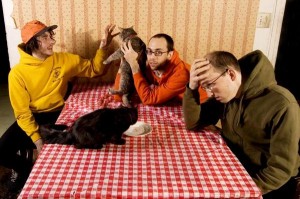
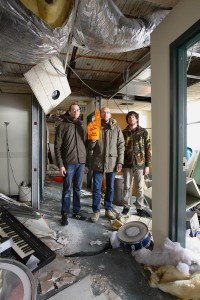



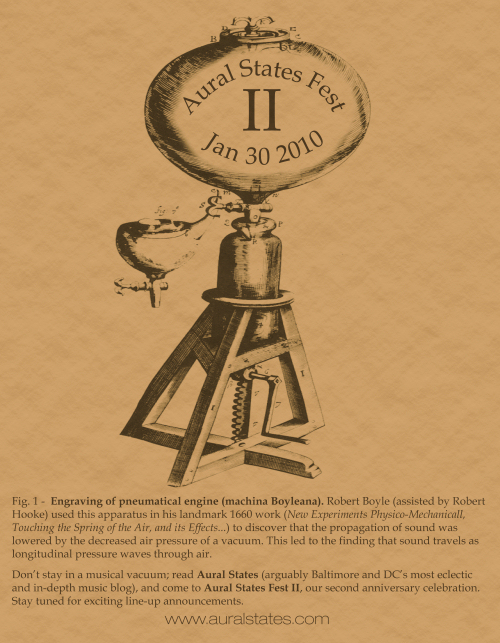
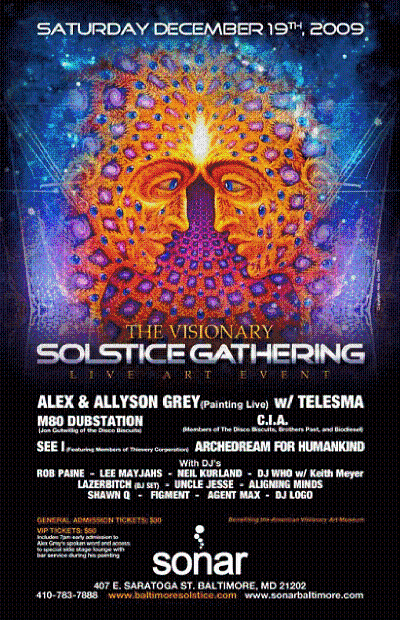









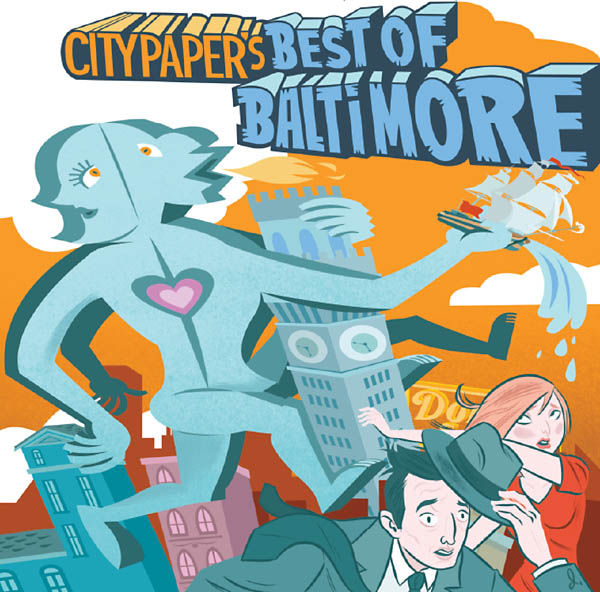
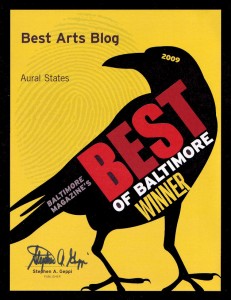


 Double Dagger: Masks EP
Double Dagger: Masks EP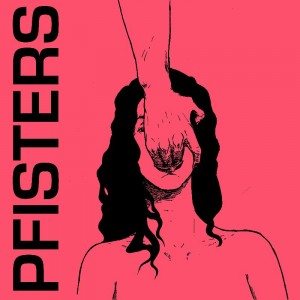 Pfisters: Narcicity
Pfisters: Narcicity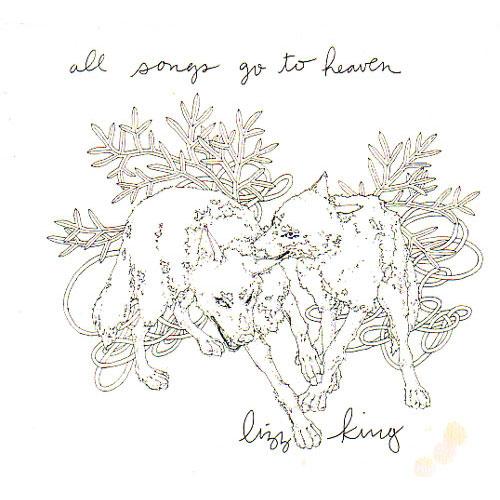 Lizz King: All Songs Go To Heaven
Lizz King: All Songs Go To Heaven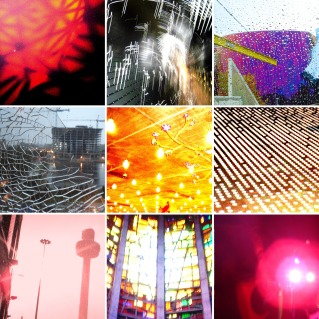 Imperial China: Phosphenes
Imperial China: Phosphenes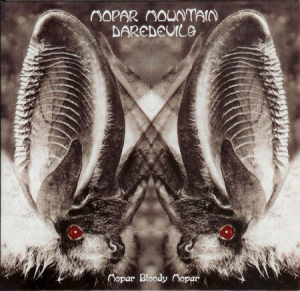 Mopar Mountain Daredevils: Mopar Bloody Mopar
Mopar Mountain Daredevils: Mopar Bloody Mopar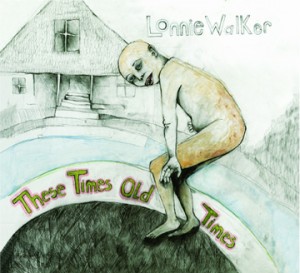 Lonnie Walker: These Times, Old Times
Lonnie Walker: These Times, Old Times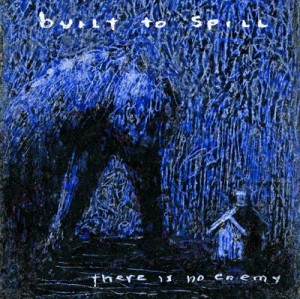 Built to Spill: There Is No Enemy
Built to Spill: There Is No Enemy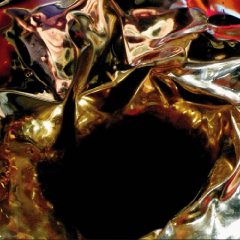 Hypnotic Brass Ensemble: Hypnotic Brass Ensemble
Hypnotic Brass Ensemble: Hypnotic Brass Ensemble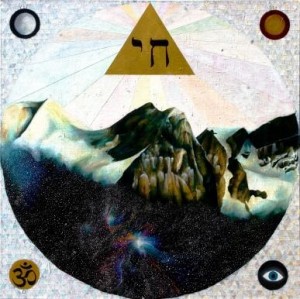 Secret Mountains: Kaddish EP
Secret Mountains: Kaddish EP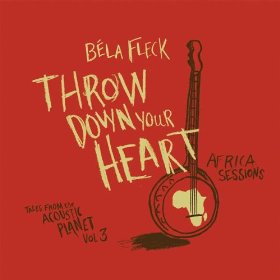 Bela Fleck: Throw Down Your Heart: Tales From the Acoustic Planet, Vol. 3 -Africa Sessions
Bela Fleck: Throw Down Your Heart: Tales From the Acoustic Planet, Vol. 3 -Africa Sessions Lands & Peoples: Lands & Peoples EP
Lands & Peoples: Lands & Peoples EP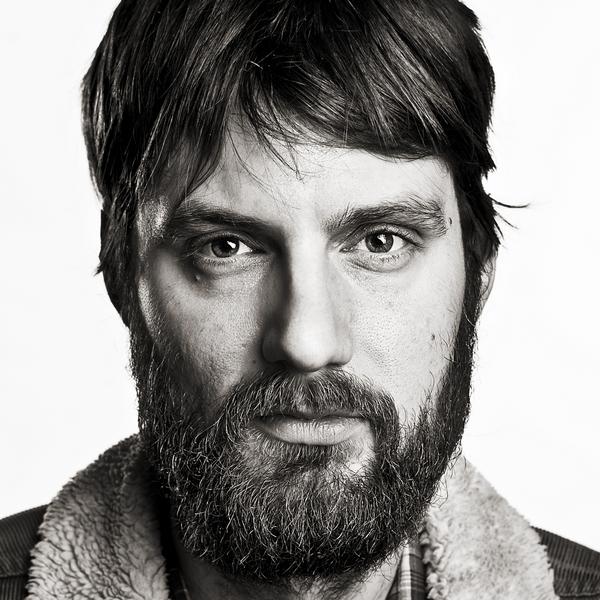 Caleb Stine: Eyes So Strong and Clean
Caleb Stine: Eyes So Strong and Clean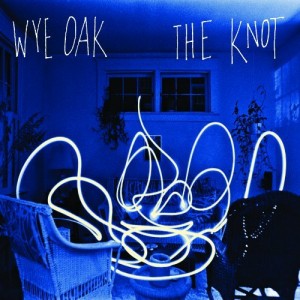 Wye Oak: The Knot
Wye Oak: The Knot Pontiak: Maker
Pontiak: Maker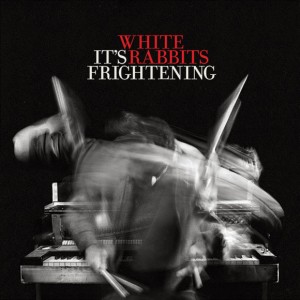 White Rabbits: It's Frightening
White Rabbits: It's Frightening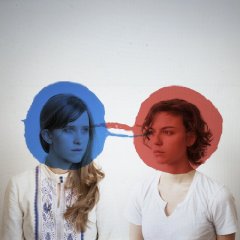 Dirty Projectors: Bitte Orca
Dirty Projectors: Bitte Orca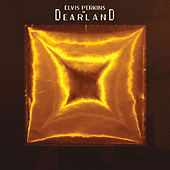 Elvis Perkins in Dearland: Elvis Perkins in Dearland
Elvis Perkins in Dearland: Elvis Perkins in Dearland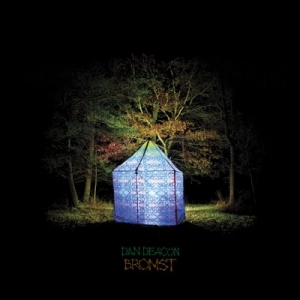 Dan Deacon: Bromst
Dan Deacon: Bromst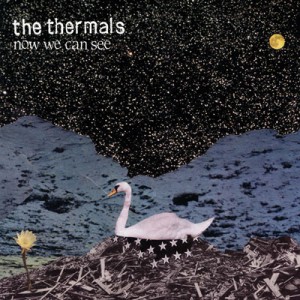 The Thermals: Now We Can See
The Thermals: Now We Can See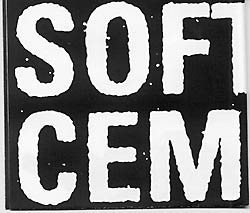 Soft Cement: Think About It EP
Soft Cement: Think About It EP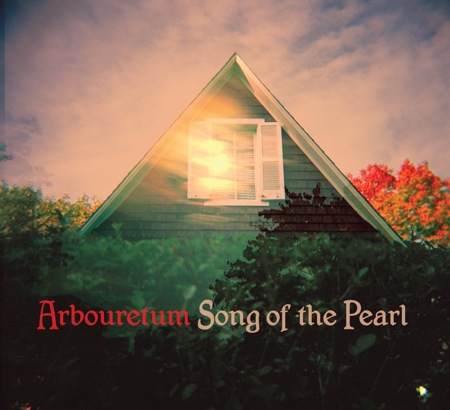 Arbouretum: Song of the Pearl
Arbouretum: Song of the Pearl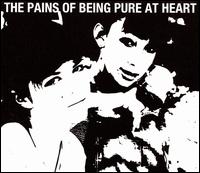 The Pains of Being Pure at Heart: The Pains of Being Pure at Heart
The Pains of Being Pure at Heart: The Pains of Being Pure at Heart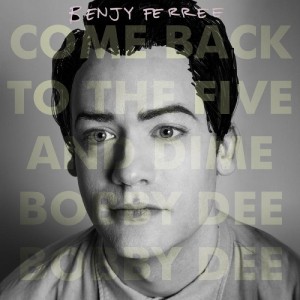 Benjy Ferree: Come Back to the Five and Dime, Bobby Dee Bobby Dee
Benjy Ferree: Come Back to the Five and Dime, Bobby Dee Bobby Dee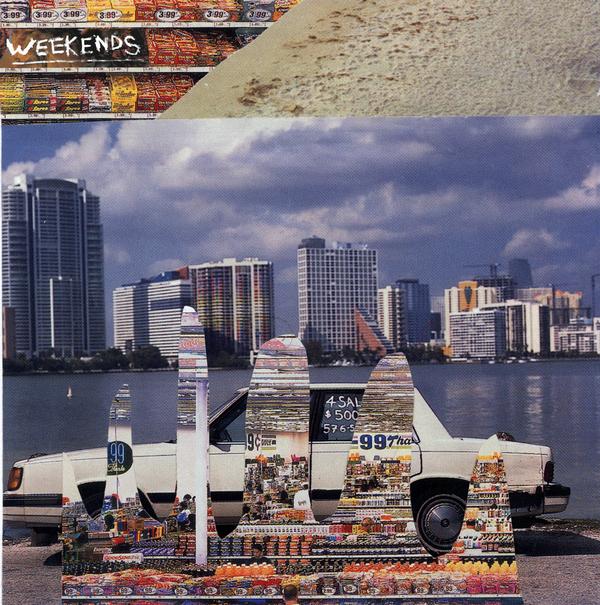 Weekends: Weekends
Weekends: Weekends Height With Friends: Baltimore Highlands 12" LP, Limited-Run Vinyl Only
Height With Friends: Baltimore Highlands 12" LP, Limited-Run Vinyl Only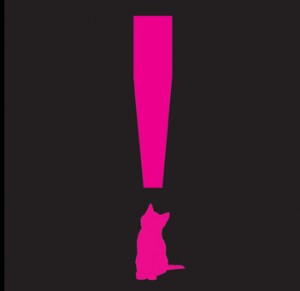 Caverns: Kittens! EP
Caverns: Kittens! EP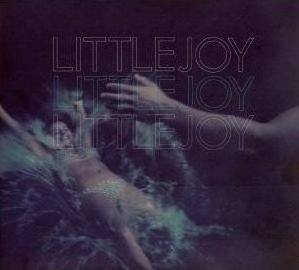 Little Joy: Little Joy
Little Joy: Little Joy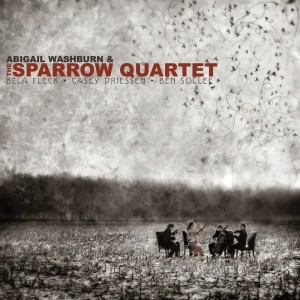 Abigail Washburn & the Sparrow Quartet:Abigail Washburn & the Sparrow Quartet
Abigail Washburn & the Sparrow Quartet:Abigail Washburn & the Sparrow Quartet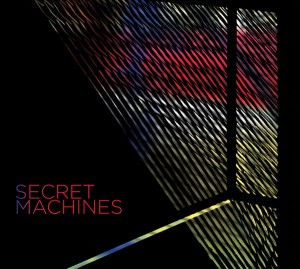 The Secret Machines: Secret Machines
The Secret Machines: Secret Machines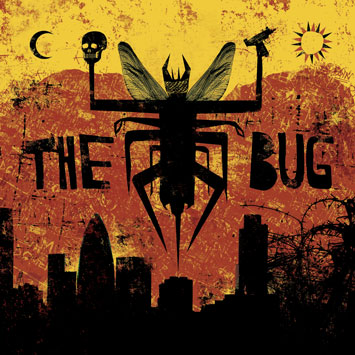 The Bug: LondonZoo
The Bug: LondonZoo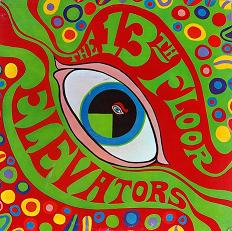 13th Floor Elevators: Psychedelic Sounds of the 13th Floor Elevators (Vinyl Mono LP only)
13th Floor Elevators: Psychedelic Sounds of the 13th Floor Elevators (Vinyl Mono LP only)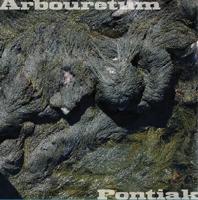 Arbouretum/Pontiak: Kale (Vinyl LP only)
Arbouretum/Pontiak: Kale (Vinyl LP only) Small Sur: We Live in Houses Made of Wood
Small Sur: We Live in Houses Made of Wood AbeVigoda: Skeleton
AbeVigoda: Skeleton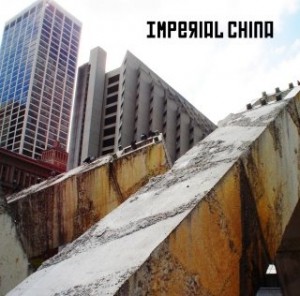 ImperialChina: Methods: EP
ImperialChina: Methods: EP
Great interview. It was interesting to read about the writing process for the new record. I was actually pretty skeptical when I started listening to the debuted song above, but as it went on I liked it more and more. I ended up listening to it on repeat as I read the article.
Nice interview…it’ll probably take me two or three more trips to Aural States to finish reading. The Lie/The Truth is a kick ass tune live.
matt- nice to see you’re not dead or a zombie.
jeff- thanks.
hell yeah
I can’t wait for MORE! I want MORE now!
totally sweet!!
Double Dagger own us all! I’m so pumped for MORE! Interesting read, should be a great record.
Npw i’ve never gotten an album by them, but is it just me, or were they not always that 90′s-nostalgic?
great interview! can’t wait to hear the new album.
i’d love to see this rehearsal space.
Great interview. It was nice to read about their entire recording process. It’s cool to think how that space may have influenced the overall ‘vibe’ of “MORE”.